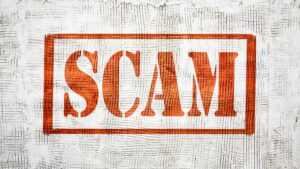In today’s fast-paced digital world, businesses are constantly seeking innovative ways to reach their target audiences. Digital marketing, with its promise of broad reach and precise targeting, has emerged as a vital tool for businesses of all sizes. However, some skeptics question its legitimacy and wonder if digital marketing is just another scam.
Understanding the true potential of digital marketing requires a closer look at its components and how they can be effectively integrated into a business strategy. By doing so, businesses can harness its power to drive growth and engagement, dispelling any myths of it being a scam.
Is Digital Marketing a Scam

Digital marketing offers tangible benefits when properly executed. It provides businesses with tools to reach specific demographics, enhance brand awareness, and drive sales. Businesses often find success by leveraging social media advertising, email campaigns, and search engine optimization. Brands like Amazon and Coca-Cola incorporate these strategies, showcasing digital marketing’s power beyond traditional methods.
Success metrics in digital marketing illustrate its efficacy. Tracking analytics enables businesses to measure campaign performance and adjust accordingly. For instance, a company targeting a millennial audience might see increased engagement through Instagram ads. These metrics help businesses optimize strategies and achieve concrete results, far from any notion of a scam.
By using certified professionals and reputable platforms, companies ensure their digital marketing aligns with ethical practices. Platforms such as Facebook and Google Ads offer guidelines and support, fostering trust and accountability. This commitment to standards reassures businesses and consumers alike about the legitimacy and effectiveness of digital marketing.
Common Misconceptions

Several misconceptions exist about digital marketing, contributing to the belief that it’s a scam. One prevalent misunderstanding is that digital marketing guarantees instant results. While effective strategies can enhance visibility and engagement, achieving significant outcomes takes time. Some people think digital marketing is synonymous with social media, obscuring the broader spectrum that includes SEO, email marketing, and content creation.
Another misconception involves the idea that digital marketing is only suitable for technology companies. In reality, digital marketing campaigns benefit businesses across various industries by reaching targeted audiences. There’s also a notion that digital marketing is excessively expensive. However, the flexibility of digital marketing strategies allows companies to tailor campaigns to their budgets.
Some skeptics believe digital marketing lacks measurable outcomes. Modern digital marketing employs analytics tools to track success metrics, offering concrete insights into campaign effectiveness. Understanding these common misconceptions helps clarify digital marketing’s ROI for businesses, reinforcing its legitimate role in today’s business landscape.
Identifying Scams in Digital Marketing

Identifying scams in digital marketing involves recognizing warning signs associated with fraudulent practices. Scammers often promise rapid success or guaranteed results, appealing to those seeking quick solutions. Transparency in strategy and outcomes is crucial; legitimate digital marketing services disclose realistic expectations and timelines. Another red flag includes requests for large upfront payments without detailed plans. Reputable digital marketing firms typically offer clear payment structures aligned with milestones.
Monitoring communication channels offers clues to identify scams in digital marketing. Legitimate providers use official communication methods, maintaining consistent contact throughout campaigns. Scammers might rely on personal emails or untraceable contact information, evading accountability. Additionally, checking for accreditations or certifications from recognized industry bodies can confirm the legitimacy of digital marketing efforts.
Evaluating the Value of Digital Marketing
Digital marketing isn’t a scam when approached with realistic expectations and a strategic mindset. It’s a powerful tool that, when used correctly, can significantly enhance a business’s reach and engagement. Understanding its components and the time required for success helps dispel myths and misconceptions. Businesses are encouraged to seek certified professionals and reputable platforms to ensure ethical practices and foster trust. By recognizing warning signs of fraudulent activities, companies can protect themselves and harness the true potential of digital marketing. With careful planning and execution, digital marketing can offer tangible benefits across diverse industries, proving its worth and legitimacy in the modern business landscape.



